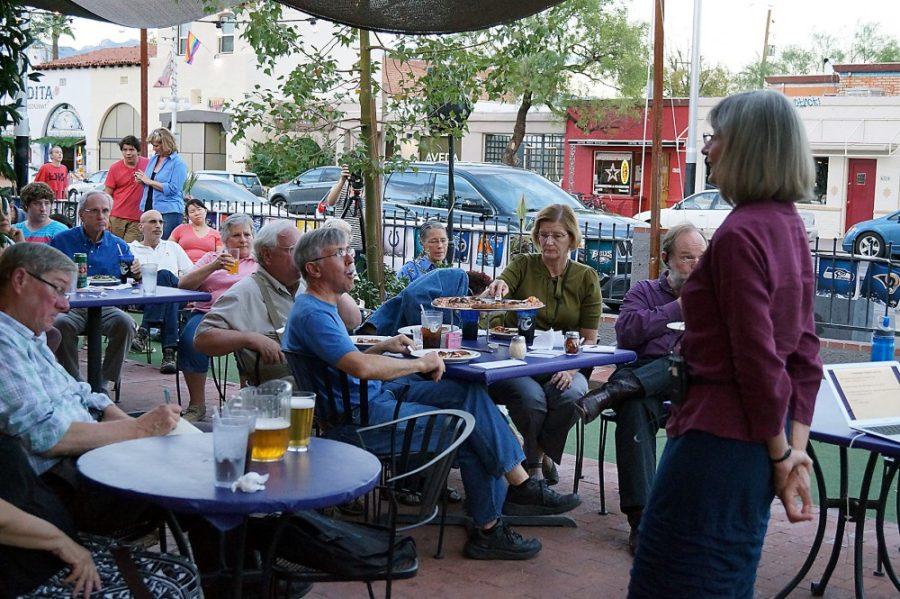The College of Science at the UA is world-renowned for its research, but getting locals interested and involved is a much harder task.
“We’re a Research I institution, so there’s a lot happening, but sometimes it seems inaccessible or unapproachable, and a lot of people assume that they aren’t able to fully understand or relate to what’s happening in this ‘ivory tower’,” said Erin Deely, the senior program coordinator for the College of Science. “We want to reach out to the public and campus community in an informal, casual setting that breaks down that barrier from the science world to the rest of it.”
They seem to have found the perfect formula to do just that.
The UA’s Science Cafés are informal presentations and discussions in casual settings based on four themes that the college feels the public should be informed about.
Borderlands Brewing Co. will host environmentally oriented Cafés presented by the UA’s Carson Scholars, graduate students who focus on environmental science and are tasked with strengthening their communication skills so that they can inform the public about their research.
SaddleBrooke community will host Cafés focusing on the plant and animal life particular to the Sky Islands.
The Cafés at Tummamoc Hill will focus on the science, history and archaeology of the Tummamoc ecological reservation.
On Tuesday, Magpies Gourmet Pizza hosted the “Science of the Senses” Café from the School of Mind, Brain and Behavior. Mary Peterson, a UA psychology professor, presented on how the brain constructs sight.
“A lot of people love to read about science,” said Peterson, “but I think it’s really great to have a discussion with a researcher about it because inevitably you have questions —questions that the paper or article doesn’t answer.”
The Science Cafés started on a whim, according to Shipherd Reed, the digital media producer for the Flandrau Science Center and brains behind the Science Cafés. Someone said that the London Science Museum hosted Cafés based on its research and he thought, “We have a lot of research, we could do that.” The center tried it out and soon found that the Cafés were a hit.
When Flandrau reopened in 2010, after budget cuts had forced it to close, the Science Cafés started up again. Joaquin Ruiz, the College of Science’s current dean, has really pushed the pursuit of science outreach, Reed said.
This year the center expanded on the already successful model of the Science Café, adding the two new locations of Borderlands Brewery and Magpies to the Science Café roster.
The Borderland’s Science Café was added after part-owner Michael Mallozzi, who obtained a doctorate in microbiology and does research at the university, called and personally asked to host a Café at the brewery.
While the response from the community has been good so far, Deely says that the center still wants to keep on expanding and connecting with the community.
“The point is to break it down for people, show them that yes, they can understand the technical jargon that scientists use, and it’s important that they do,” said Deely. “There’s a lot of public opinion and public policy that goes into research, so being knowledgeable about the subject matter, asking questions that need answers, is vital for people who are voting on these matters.”









